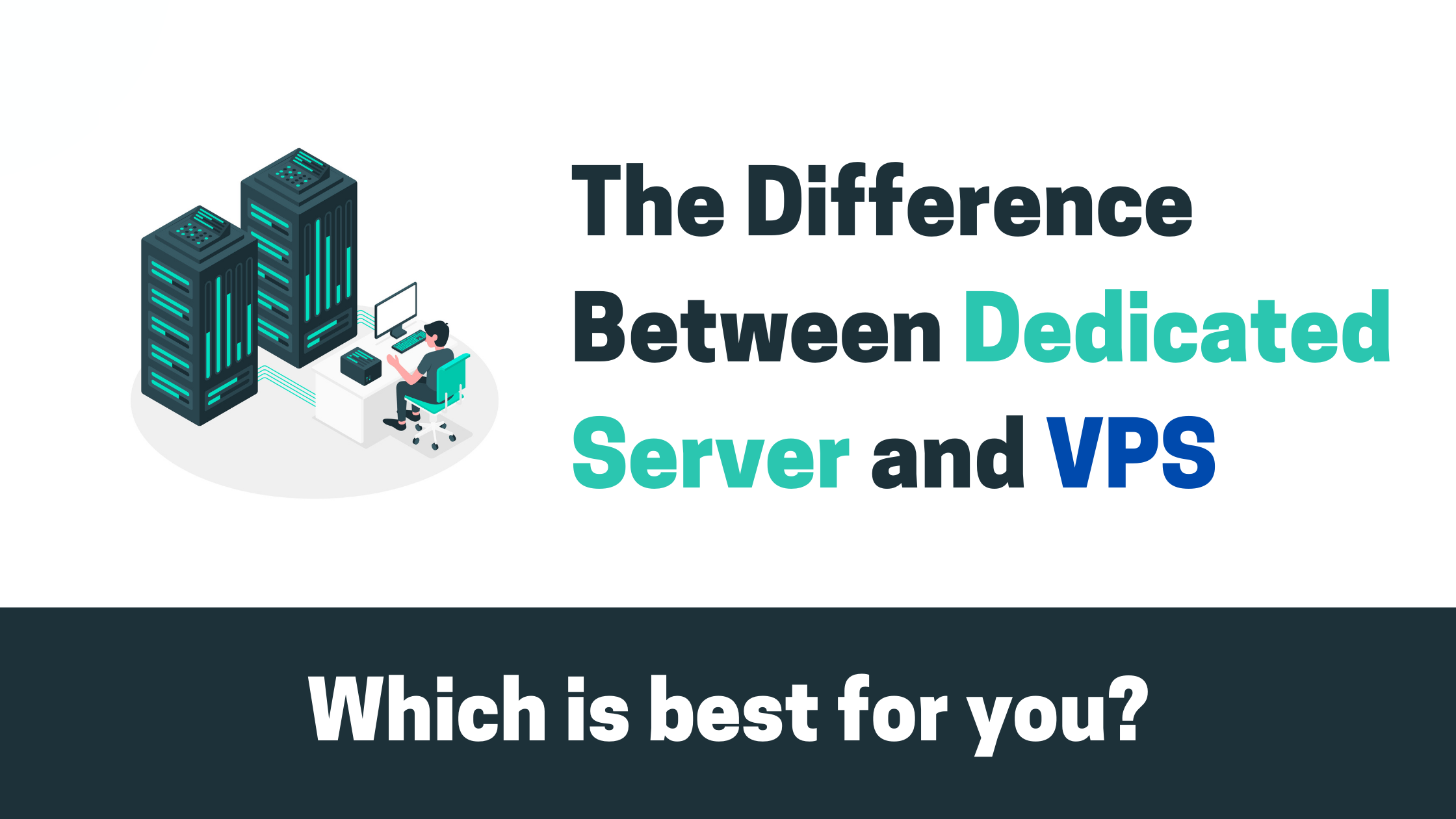Dedicated Servers and VPS servers often sound like the same thing and it might be a bit overwhelming for you to understand what the key differences between them are.
This post is created to help you easily understand the differences between VPS servers and Dedicated Servers, in a short, simple and easy way that you can easily choose the best option out of both by the end of this article.
Similarities between VPS and Dedicated Servers
Before we understand the differences between VPS and dedicated servers, knowing it is similarities might be helpful.
VPS and Dedicated Servers come with OS-level access with root or admin credentials. Such that, you’re the master of your server and you can install any software you want on your server with complete flexibility and independence.
For example, if you want to use Python on your server, you don’t have to ask anyone to install that on your server as with administrator-level access to the server, you can install and set up Python all by yourself.
What is a Dedicated Server?
With a dedicated server service, the web hosting provider, or datacenter operator, would provide you a complete physical machine.
A physical server is just like a personal computer, which includes hardware components like CPU, RAM, and Storage. But the difference between a home-use computer and server hardware is that the server hardware comes with greater capacity, like with more CPU cores, more gigabits of RAM per stick, etc.,
The biggest advantage of using a Dedicated Server is the fact that all your server resources from RAM, CPU to Storage are allocated for you, completely. This allows your website or application to harness the raw power of hardware components and functions without bottlenecks.
As mentioned before, as you’re getting root/admin-level access to the server, you can install any software on your server all by yourself without needing the help of anyone, including your web hosting provider.
Unlike Cloud solutions and other types of hosting, a dedicated server comes with guaranteed resources. At times of peak sales, like during Black-Friday, most of the Cloud networks suffocate due to the volume of requests. But that ain’t the case with Dedicated Servers. As you’re not sharing anything with anyone, you don’t have to worry about the usage of your neighbor and you can serve your clients as faster as usual.
What is a VPS Server?
As dedicated servers come with completely dedicated hardware, they aren’t so cheap. And for many, they don’t need that many resources a dedicated server offer. So, people with lesser compute demand had to buy huge dedicated servers, paying extra for resources that they are not going to use.
As a solution for both the problems, the internet corporations came up with VPS Servers. The solution was similar to the ones that bakeries followed for centuries – if one person isn’t willing to take a whole cake, slice it up and give them as many slices they want. This removes the requirement to buy the whole thing in order to use a part of it.
A VPS Server is just like a cake piece, it is cut out of a whole server to provide the users with as much CPU, RAM, and storage they want. This is made possible through Virtualization technologies which allow a single server to be split up into multiple virtual servers with dedicated resources for each virtual server like CPU, RAM, and Storage.
Even though VPS servers are part of a single server, it acts as if they are physical servers in nature. And each and every VPS is completely isolated from one another, providing extraordinary security, just like a dedicated server.
As a result of this slicing up, the pricing of VPS servers is way cheaper than that of a dedicated server, allowing you to harness its power without a financial burden. At the end of the day, a VPS is more or less like a miniature version of a Dedicated Server.
VPS resources are dedicated or not?
There is a common misconception that VPS servers come with 100% dedicated resources. However, that’s just a half-truth. Most of the VPS vendors oversell their compute resources like if they only have 40 vCPU cores on the physical server, they would end up selling 80 VPS servers with each 1vCPU core, selling a total of 80 vCPU cores, even though their server has only 40 vCPU.
Overselling is one of the biggest problems to look upon when opting for a VPS. And there are even providers who sell 400% of actual resources. As a result of all this overselling by your provider, on the day your need, like on a Black Friday sale, your site might go down or provide a suboptimal experience to your users.
Cloud VPS providers and Public Cloud operators are no exception to Overselling.
Such that, choosing the right VPS provider is essential if you prefer not to lose any sales on important days and if your budget allows you, opt for a Dedicated Server for better peace of mind.
And there are also different types of VPS Servers available in the market, like a Managed VPS Server and Unmanaged VPS Servers. You can know more about the difference between Managed and Unmanaged VPS in our previous blog post.
Conclusion
So the decision of whether to choose a VPS or Dedicated Server rests in your hands.
Our recommendation is, If you’re tight on budget, still want to start up, a VPS is an ideal choice. If you have a budget and foresee growth, a Dedicated Server becomes the ideal option and is worth every single penny spent.

